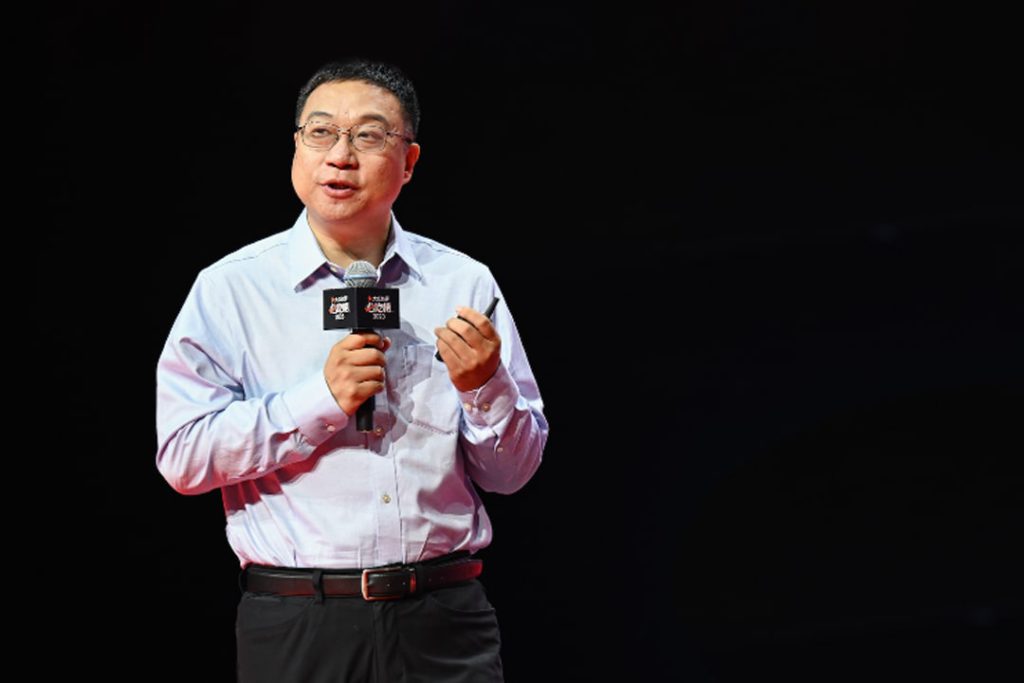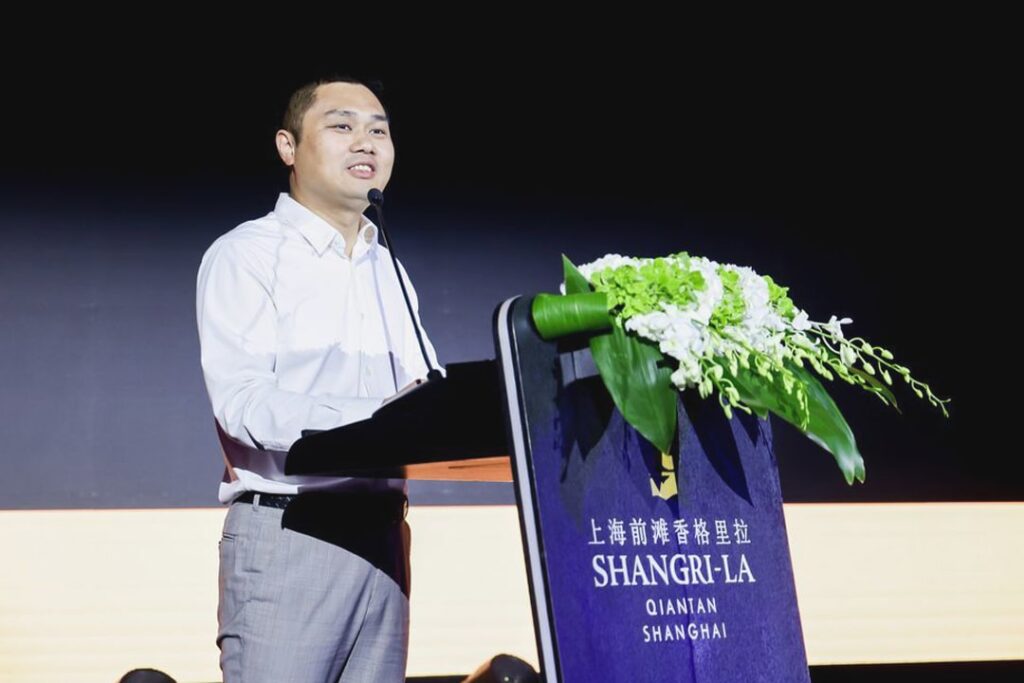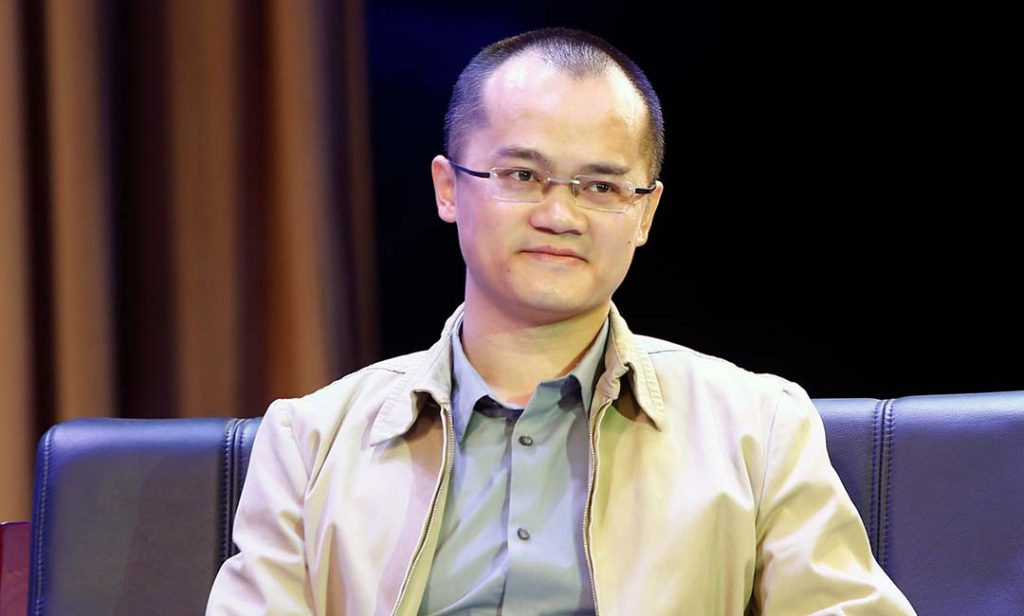Amid the declining performance of its in-store business and plummeting stock prices, Wang Xing, CEO of Meituan, announced the company’s most significant organizational restructuring exercise in six years.
The most crucial change in this adjustment is the integration of its two major business groups, “to-home” and “in-store, and its two central departments, platforms and R&D. All will report directly to Wang Puzhong, Meituan’s senior vice president. Zhang Chuan, previously the president of the in-store business unit, will take over several businesses under Meituan including Dianping, software-as-a-service, bike-sharing, and power bank solutions, among others. Other parts of the organizational structure will remain unchanged.
Several Meituan employees were surprised at this adjustment, especially regarding Zhang’s reassignment. There were hardly any rumors beforehand, and an insider told 36Kr that Zhang had only begun to plan this transition during a closed-door meeting toward the end of January this year. Zhang had also sent a new year’s message to all employees of Meituan’s in-store business group, urging them to be “at the front lines” and change their strategies to cope with the fierce competition from ByteDance’s Douyin.

The last time Meituan underwent an organizational overhaul of such scale was in 2017, when the in-store business group was established with Zhang as its leader. Meituan has since been maintaining a dual-track strategy with two core businesses: the in-store division focuses on group-buying models segmented based on consumer scenarios, while the to-home division encompasses food delivery, flash sales, and more.
Organizational restructuring is often aimed at better coping with intensifying competition, and Meituan’s move is no exception.
In 2023, Meituan experienced a major downturn, with Douyin’s rapid growth in local lifestyle services raising concerns about its future prospects. While Meituan has been a dominant player, it had ostensibly been “lying flat” for years, resorting to heavy marketing and subsidy outlays to retain its market share. This strategy has diluted its profit margins and cash flow.
Coupled with significant losses from new businesses like Meituan Select and a plateauing food delivery business, Meituan’s stock price has recently hit a new low, breaking below the IPO price for the first time in over three years. Frustration had also been spreading within Meituan since the second half of last year, with employees worrying about the company’s and their own futures.
Wang Puzhong: Meituan’s most trusted “general”
While the merger of both business groups—to-home and in-store—had already been presented in financial reports under the umbrella of “core local commerce” some time ago, both groups were believed to be operating independently prior to the latest restructuring exercise, led by Wang Puzhong and Zhang, respectively, reporting directly to Wang Xing.
After this adjustment, Wang Puzhong will shoulder both businesses, which is unprecedented in Meituan’s history. “There has always been an attempt to promote synergy between the to-home and in-store businesses,” an insider close to Meituan told 36Kr. Previously, in response to competition from Ele.me, Meituan redirected resources from the in-store business to support its to-home segments, doubling down on operations efficiency and thereby helping it win the “food delivery war.”

In 2023, Douyin’s gross transaction value (GTV) in local lifestyle services exceeded RMB 200 billion, approaching one-third of Meituan’s in-store business. This progression exceeded the expectations of Meituan’s management. Since the end of last year, concerns have been raised internally at Meituan that the erosion of its in-store business might threaten the progress of the to-home business. This concern notably peaked in the market when rumors of Douyin acquiring Ele.me emerged.
This situation paralleled Ele.me’s challenges. In 2023, Ele.me started prioritizing “market scale” in evaluations, it further increased market subsidies accordingly.. This led to a deterioration in Ele.me’s financial performance in 2023. A senior executive from Ele.me told 36Kr that this decision was influenced by the rapid growth of competitors in the in-store business, which could affect the growth of the to-home business.
A clear contrast could be seen in Ele.me’s transaction volume growth, which dropped from around 7% to approximately 5–6% in the past year, subsequently stabilizing at a lower level.
The choice of Wang Puzhong may be related to his notable achievements in the past. Since joining Meituan in 2015, Wang Puzhong has held various positions, including senior product manager for food delivery logistics and head of the food delivery and logistics divisions. He is also the youngest member of Meituan’s “S-team” and one of the few born in the 1980s.
Wang Xing had a theory of adversity, believing that one’s growth path involves experiencing battles, winning battles, facing tough battles, and winning tough battles. Wang Puzhong, who joined Meituan in 2015, exemplified this theory. He navigated the food delivery war between Meituan and Ele.me, successfully turning food delivery into Meituan’s flagship business with a market share of over 70% and accounting for more than 60% of the group’s total revenue.
During his tenure in charge of Meituan Maiyao, the company’s online medicine platform, Wang Puzhong managed to achieve significant scale within just 10 months. When social commerce became popularized in 2020, Wang Puzhong predicted that Pinduoduo would be the most formidable opponent, stating that it is a “protracted battle that will be challenging for startups and inexperienced companies to win.”
One of his recent achievements was the launch of Pinhaofan during the pandemic in 2021. Utilizing a group-based ordering and delivery model, Pinhaofan was able to address delivery challenges while tapping into the trend of declining consumer spending. As of Q4 2023, it had captured 20% of Meituan’s total food delivery orders, contributing to the company’s food delivery order growth.
Wang Huiwen, co-founder of Meituan, once praised him, saying, “Puzhong can communicate with me not because of his communication skills but because of his abilities.” This sentiment is seemingly echoed among Meituan employees. “Apart from his strong business sense and methodical approach, what sets Wang Puzhong apart from other executives is his strong execution and down-to-earth attitude,” a Meituan employee told 36Kr.
In comparison, when Zhang joined Meituan in 2017, Meituan already held a dominant position in the in-store sector. Apart from Dianping’s “Must-eat List” and the “Black Pearl Restaurant Guide,” Zhang’s contributions were largely focused on expanding the market share and profitability of the in-store business, according to a longtime employee at Meituan. Unlike Wang Puzhong, Zhang had not led teams in fending off intense competition and achieving victories in challenging situations.
Following this adjustment, Zhang will continue to lead Dianping and take over several other businesses under Meituan. Whether he can help Dianping complete its transformation into a content-driven platform will be his “battle for redemption.” Noteworthily, Zhang once said at an internal meeting that “if Dianping doesn’t transform into a content- and video-driven platform, it will undoubtedly be overturned in the next few years.”
An employee from Meituan told 36Kr that blaming Zhang entirely for Meituan’s inadequate response to competition in the in-store business was “unfair,” stating that market share has since stabilized under his charge. Nonetheless, stepping down from the position of president of the only two business groups at Meituan is undoubtedly a significant blow to Zhang.
To enable Wang Puzhong to better mobilize resources and improve organizational efficiency, Wang Xing also assigned Meituan’s two central departments to his leadership.
Improving efficiency is an urgent need for Meituan now. A Meituan to-home employee once said to 36Kr that when Meituan first explored livestreaming, it wanted the initiative to be led by the strategy team despite lacking any personnel with a profound understanding of the vertical. After three months, Meituan’s management team eventually decided to focus on low-priced livestreaming, although the strategy adopted was discontinued not long after in 2022, wasting a considerable amount of time. This example illustrates Meituan’s sluggish response to Douyin’s competition.
Is Wang Xing back in the limelight?
Another key focus of this adjustment is that Meituan’s exploratory and overseas businesses, including unmanned aerial vehicles (UAVs), will report directly to Wang Xing.
Previously, the UAV business had always been housed under the to-home business group, with Mao Yi, its head, reporting to Wang Puzhong.
Wang Puzhong had always advocated for separating the UAV business from the to-home business group, citing that the losses it incurs affects the financial performance of the overall group, diluting its budget. He also rationalized that the UAV business is likely more suitable for independent exploration.
Meituan’s focus has become clearer with this adjustment, with local and retail operations to be managed by Wang Puzhong, while technology and internationalization will be led by Wang Xing.
At a time when local and retail businesses are facing challenges, Wang Xing is once again stepping onto the stage to personally undertake the task of finding new growth areas for Meituan.

In May last year, 36Kr reported that Zhu Wenqian, Meituan’s head of overseas investments, along with Wang Xing and Wang Puzhong, visited the Middle East to explore the possibility of launching food delivery services in the region. However, the plan was later shelved due to internal concerns about the market’s food delivery volume and whether the potential growth rate justified investment. This is particularly the case, considering that food delivery is a heavily offline, execution-intensive business.
However, with the era of globalization upon us, this is an effort Meituan cannot afford to ignore. Wang Xing has stated on multiple occasions that “the company will maintain a cautious attitude toward expanding overseas businesses.” Still, he believes that “globalization is an absolute necessity and a huge opportunity.” During the Q3 earnings call last year, Wang Xing once again did not rule out seeking overseas growth opportunities.
Wang Xing will be encouraged by the good news emerging from Hong Kong, its first stop in Meituan’s overseas expansion. Market research showed that, within less than half a year of its opening, Meituan’s KeeTa has attained a market share of around 31%, surpassing Deliveroo to become the second largest operator in Hong Kong.

However, unlike e-commerce, the business model of food delivery is inherently not as economically scalable. This means that Meituan needs extremely high operational efficiency to ensure profitability, which is a major challenge for the company, especially with its current cash flow not being abundant.
However, unlike e-commerce, the business model of food delivery is inherently not as economically scalable. This means that Meituan needs extremely high operational efficiency to ensure profitability, which is a major challenge for the company, especially with its current cash flow not being abundant.
Compared to international expansion, businesses represented by autonomous delivery vehicles and drones have been explored for a long time but are still incurring losses, making large-scale commercialization unlikely in the short term.
An unnamed source also told 36Kr that Wang Xing had previously criticized the high cost of the autonomous delivery vehicle project. “The current internal perspective is to reduce losses and try to allocate cash flow to core businesses.”
Meituan is currently facing its most significant challenge since going public. With its businesses encountering resistance and its stock price continuously declining, both internally and externally, there is a sense of frustration. However, this adjustment somewhat signals a change.
Wang Xing once said, “One fundamental characteristic of a startup is that it cannot expect to enter an autopilot state,” which has been the norm for Meituan in recent years. To thrive in the coming years, reverting to the mentality of a startup is imperative.
KrASIA Connection features translated and adapted content that was originally published by 36Kr. This article was written by Dong Jie for 36Kr.

